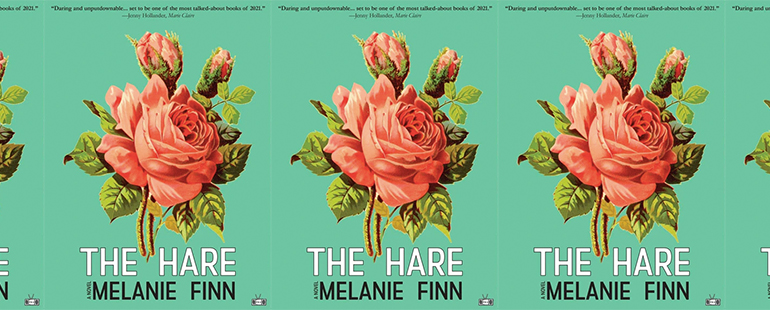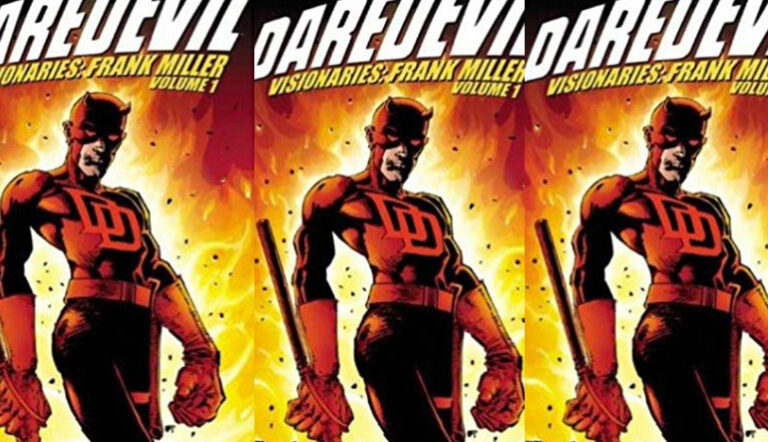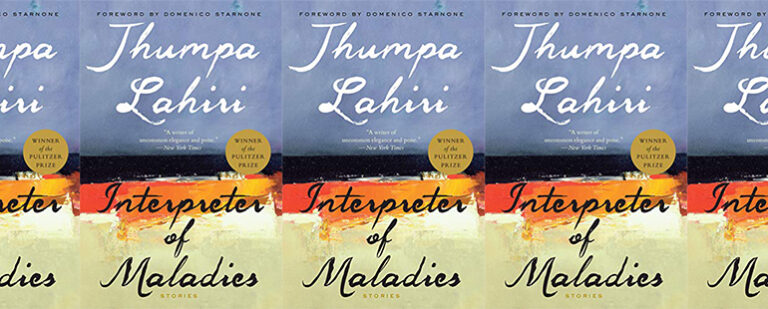The Hare by Melanie Finn

The Hare
Melanie Finn
Two Dollar Radio | January 26, 2021
The term “novel of education”—the literal translation of the German Bildungsroman—applies to The Hare, Melanie Finn’s fourth novel, with pounding force. Calling the novel “coming-of-age,” the more common, less-literal translation of Bildungsroman, feels limiting and inaccurate, as the novel follows protagonist Rose Monroe from age 18 to 54, beyond the usual breadth of most novels about a young person’s crossing into adulthood. Rose is a lonely and painfully insecure art student at Parsons School of Design when she meets Bennett, an alleged art dealer with ties to upper-class socialites who is 20 years her senior. Rose becomes so enamored with him she fails to spot his many raging red flags. When she becomes accidentally pregnant, she drops out of school and follows Bennett into the northern Vermont wilderness where he claims his new job is located. After Bennett abandons her, Rose must learn to survive as a single mother on nominal income. Her education is fast-tracked due to the quick succession of unfortunate events she experiences by age 20. More significantly, her education is very much a woman’s education, unavoidably attained within a patriarchal context and acquired on account of abuses suffered at the hands of men.
Early in The Hare, 18-year-old Rose is inexperienced, naïve, and curious—a sponge for knowledge and liable to absorb it indiscriminately. Her gullibility springs from her lack of self-confidence, the chronic symptom of a childhood spent in the custody of a distant, unsupportive grandmother, and a sexual assault suffered at a young age at the hands of her grandmother’s male lodger. In turn, 38-year-old Bennett is very clearly a teacher, their interactions being, in effect, lessons. When they first meet, Bennett debates Rose, challenging her take on “the point of art.” Rose continually asks questions in these early scenes, and Bennett loves to explain, define, and correct—how one should hold a spoon, what sexual positions to adopt, what wines to drink and literature to read, how to roll a joint. The attendant power imbalance in a relationship marked by a student-teacher dynamic is obvious, as is Bennett’s predatorial attraction to Rose who wears her naivety like a big shiny badge. Rose, however, is impervious to this or at least fails to consciously recognize it. To her, Bennett’s paternalism is a sign of his care and love—something she’s been missing her whole life. It is not until Bennett behaves so egregiously as to leave zero doubt regarding his true nature that Rose starts to realize her mistake.
One of the subtle ways Finn presents Rose’s maturation is through her progressing mastery of language. “Whoever lives here crochets antimacassars,” Bennett tells her at one point, early in the novel, and she responds, “What is an anti-massacre?” At another point she hears the word “pusillanimous” and must wait until she is back home to look it up. Soon, however, Rose comes to employ these words herself. She tells herself twice in the novel to not be so pusillanimous, now fully aware that it means “cowardly.” Finn also writes, “Often Bennett’s sentences were a kind of lace—an antimacassar—full of pretty holes [Rose] didn’t understand.” A word Rose had no knowledge of is now used in a nascent and exciting criticism of Bennett. This insight is doubly potent—there is the power in Rose, a young woman, having expanded her vocabulary, which in turn allows her to apply the metaphor of a flimsy decorative lace to Bennett’s treatment of her. Her ability to criticize him suggests a distancing from him, an appreciation of her own strength and individuality, an escape from his hold. Here the student learns that her teacher may not be worthy of the role—the sign of a successful education indeed.
Once Bennet forces Rose to relocate to a remote cabin in Vermont where she and their daughter Miranda are effectively left to fare on their own, her education switches gears. Rose is no longer a student of Bennett’s syllabus of social manners and essential Penguin Classics reading. After his ultimate betrayal—his abandonment—Rose consciously cuts off Bennett and becomes a student of her new environment instead: the land, nature, the vicissitudes of the local weather. At first, Rose is clueless as to the basic tasks of physical survival: how to light a fire to warm the uninsulated shack, or how to secure food on essentially zero income. She is aided in her education, and literally saved from cold and starvation, by a neighbor, Billy—a hermit with a sage-like knowledge of living in the wild—and, notably, a woman. Rose soon becomes expert in hunting, foraging the woods for food, and snowshoeing with her child strapped to her body. This education remains firmly rooted in her condition as a woman. Single motherhood, a formal education cut short due to pregnancy, no marketable skills, and no way to afford daycare—these are the conditions that drive her, force her, to learn physical survival skills, conditions that are historically, painstakingly, gender-specific.
At the end of The Hare, Rose is 54 years old; we jump forward by 26 years, to 2019. She is now a person with decades of experience, of learning forced by circumstances so closely linked to being snared by Bennett and going farther back, suffering abuse at the hands of her grandmother’s lodger. Rose summarizes what we can imagine is only the tip of the iceberg in terms of all the things she’s been forced to do, and to learn to do: “how she’d locked Miranda in her room in order to hunt and how she’d let the guy at Tire World in Littleton fuck her for a set of snow tires, she’d cleaned the toilets of junkies in a motel, she knew the name of every bird in the woods, and gathered mushrooms and wild plants.” The unifying quality of this section is its tone, which so often drifts into Rose’s justifiably anger-fuelled assessment of women’s situation, often prompted by her perception of herself as now weakened and wilted, and no longer seen as useful in society.
But this final stage of Rose’s story—as later parts of life tend to be—is also reflective, backward-looking, and while there is a strong hint of bitterness, Rose also has pride. We get more clarity about the assault Rose suffered as a young child, that her grandmother was likely privy to the assaults and derived an economic benefit from them, as it helped her to retain a lodger and rental income. Rose’s remembering is a form of education as well, re-learning repressed, painful facts. Examining the sexual assault that took place in Rose’s childhood, we are made aware of the generational aspect of women’s survival tactics. Rose’s grandmother, after all, was widowed, with all her children dead, stuck with the care of her granddaughter, and clearly desperate for income. Her lodger—and the requirement that she turn a blind eye to what he got up to—were her way of surviving.
The tactic was cruel and unforgivable, something like the hunt of a helpless creature—the titular hare, perhaps—but, tragically, it was brought about by the same conditions in which Rose must later wade, the socio-economic reality that renders women more vulnerable to poverty and abuse. In the end, it takes a lot of looking back at one’s life to appreciate which lessons were worth pursuing and ultimately made for a life-saving education. The Hare gives us an important, comprehensive picture of the stages of a woman’s learning, suggesting, that over time, teachers will be rejected, new ones sought, and the student might herself become a teacher. The need to adapt, however, to be on guard, to figure out new methods of surviving will be life-long, the way it is for an animal in the wild, hyper-conscious of its vulnerability.


